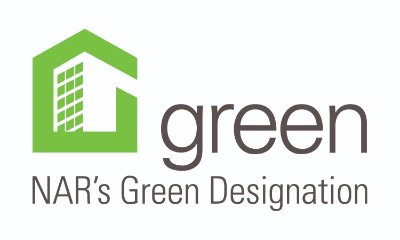Renewable energy is the future. Solar power, in particular, has gained immense popularity as both individuals and businesses seek to reduce their carbon footprint and save on energy costs. One of the biggest decisions prospective solar adopters face is whether to lease or buy their solar panels. This blog will explore the advantages and disadvantages of both options, helping you make an informed decision based on your specific needs and circumstances.
Understanding the Basics
What Does Leasing Solar Panels Entail?
Leasing solar panels means that you enter into a contract with a solar panel provider to use their equipment for a specified period, typically 20 to 25 years. In this arrangement, the panel provider retains ownership of the panels and is responsible for their maintenance and repair. You pay a monthly fee for using the panels and benefit from the electricity they generate.
What Does Buying Solar Panels Involve?
When you buy solar panels, you pay for the system upfront or finance it through a loan. You own the panels and are responsible for their maintenance and any necessary repairs. The electricity generated by the panels reduces your electricity bills, and any excess power can often be sold back to the grid.
Financial Considerations
Upfront Costs
One of the most significant differences between leasing and buying solar panels is the upfront cost. Leasing typically involves little to no upfront payment. This makes it an attractive option for those who want to start using solar energy without a large initial investment. On the other hand, buying solar panels requires a substantial upfront payment, which can be a barrier for many people. However, various financing options, including solar loans provided by banks, credit unions and other private lenders, can spread the cost over several years, making it more manageable.
Long-term Savings
When it comes to long-term savings, buying solar panels tends to be more advantageous. Since you own the panels, once they are paid off, the electricity they generate is essentially free, barring maintenance costs. Over the lifespan of the panels, typically 25-30 years, this can result in significant savings compared to continuing to pay for electricity from the grid or a lease payment. Leasing, while requiring lower initial costs, generally offers smaller long-term savings. The lease payments can be less than your previous electricity bills, but since you don’t own the system, you won’t benefit from the full amount of electricity savings. Additionally, most leases include an annual escalation clause, increasing your payments over time.
Incentives and Tax Credits
When you buy solar panels, you can take advantage of various federal, state, and local incentives, including the federal solar Investment Tax Credit (ITC), which can cover a significant portion of the installation cost. Some states also offer additional rebates and incentives for solar panel installations. Leasing companies often claim these incentives themselves, which is part of how they can offer solar panels with no upfront costs. As a lessee, you typically won’t be eligible to claim these credits directly, potentially missing out on substantial savings.
Ownership and Maintenance
Responsibility for Maintenance
One of the perks of leasing solar panels is that the leasing company is responsible for the maintenance and repair of the system. If something goes wrong, it’s their job to fix it, often at no additional cost to you. This can provide peace of mind, especially for those who are not comfortable with the technical aspects of solar panel maintenance. When you own your solar panels, maintenance is your responsibility. While solar panels are generally low maintenance, issues can still arise. You may need to clean the panels periodically and monitor the system’s performance. If repairs are needed, you’ll have to cover those costs yourself, although many manufacturers offer warranties that cover certain repairs and replacements.
Impact on Property Value
Owning solar panels can increase your property value. Homes with solar panels often sell for more than those without, as buyers recognize the benefits of lower electricity costs and the appeal of renewable energy. Leasing solar panels can add a layer of complexity to the sale of a home. Prospective buyers will need to assume the lease, which could be a deterrent. Some buyers might be hesitant to take on a long-term financial commitment, particularly if they’re unsure about the benefits or terms of the lease.
Flexibility and Mobility
Relocating
If you think you might move before the end of a typical 20-25 year lease term, buying solar panels might be a better option. Selling a home with leased panels can be challenging, as the new owner must be willing to take over the lease. Additionally, transferring a lease can be a cumbersome process involving paperwork and credit checks. When you own your solar panels, they become part of the property. If you sell your home, the panels are sold with it, potentially increasing the property’s value. Alternatively, if you wish to take the panels with you, this can be an option, although it involves additional costs for removal and reinstallation.
Environmental Impact
Commitment to Renewable Energy
Both leasing and buying solar panels contribute positively to the environment by reducing reliance on fossil fuels and decreasing greenhouse gas emissions. However, owning solar panels can be seen as a stronger commitment to renewable energy. When you own the panels, you’re more likely to maximize their use and ensure they remain operational for their entire lifespan. Leasing can be a more temporary commitment. If the lease expires and you choose not to renew it or purchase the system, the panels may be removed, potentially reducing long-term environmental benefits.
The Bottom Line: Making the Decision
Who Should Lease Solar Panels?
Leasing is probably the right choice if:
- You prefer little to no upfront cost.
- You’re not interested in handling maintenance or repairs.
- You want a hassle-free way to start using solar energy.
- You plan to own your current home for the duration of the lease..
- You’re not eligible for tax incentives that make buying more attractive.
Who Should Buy Solar Panels?
Buying is likely to be the right choice if:
- You can afford the upfront cost or qualify for favorable financing.
- You want to maximize long-term savings on electricity.
- You want to take advantage of tax incentives and rebates.
- You’re comfortable with or can manage maintenance responsibilities.
- You want to increase your property value.
- You see solar as a long-term investment in renewable energy.
There are pluses and minuses whether you lease or buy your solar panels. The best option for you will depend on a number of factors including your personal financial situation, long-term goals, and personal preferences. Leasing offers an accessible entry point into the world of solar energy with minimal initial cost and maintenance responsibilities. In contrast, buying provides greater financial benefits over time, potential tax incentives, and increased property value.
By carefully considering the factors outlined in this blog, you can make an informed decision that aligns with your needs and helps you contribute to a more sustainable future. Whether you lease or buy, embracing solar energy is a positive step towards reducing your environmental footprint and supporting renewable energy initiatives.



